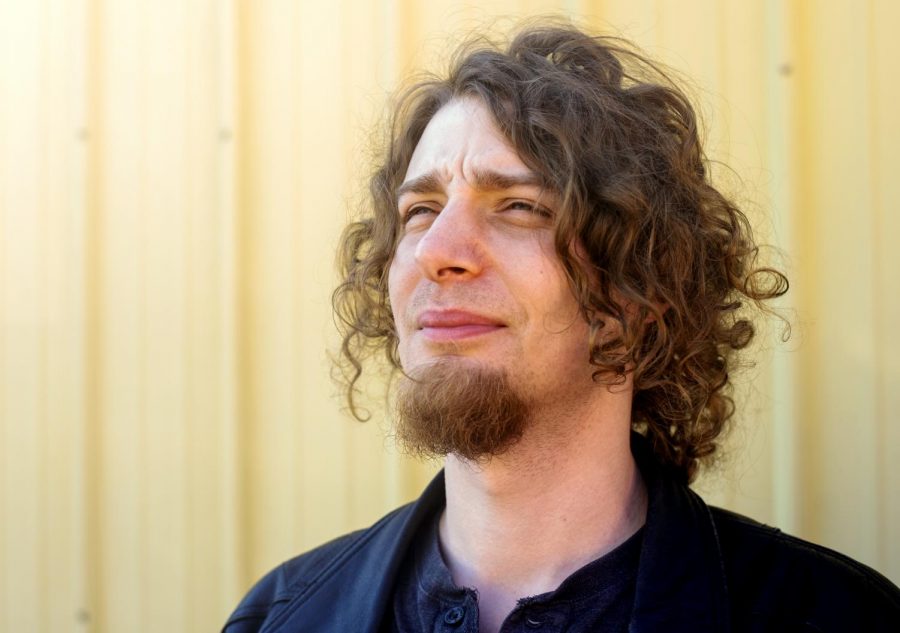‘Breathing life’ back into old computers for students: how a Bowling Green man is giving back
January 29, 2021
A few years ago, Ty Meador noticed a discrepancy between education shifting online and students’ accessibility to adequate technology. This was only heightened by the pandemic with schools adapting to virtual education and unemployment rates surging.
“There’s this dichotomous state where we need more computers but fewer people can afford them because the economy has shrunk,” Meador said.
While COVID-19 continues to spread around the world, students spend hours a day in virtual classrooms, professionals transfer from one online conference call to the next and even doctor’s appointments have moved online to keep patients safe.
Human dependence on technology is at an all-time high, and Meador said the disparity in access to technology is simultaneously increasing.
The PC industry saw an 11.4% growth rate from the previous year, with the quarter ending in September, according to an estimate from technology research company Gartner. The demand for personal computers is increasing, though not everyone is able to afford them, Meador said.
Meador realized that people had old computers sitting in their closets that he knew he could easily refurbish.
“People have these old 10-year-old machines lying around and they’re willing to just give them away,” Meador said, “This hardware, while old, while not the fastest, is more than enough to get people through their day to day activities, browsing the web, typing up Word documents, whatever [they need].”
Meador, who fell in love with software development while taking computer programming classes at Warren Central High School, is currently pursuing a computer science degree at WKU. He knew he wanted to use his talents for a good cause, so he started Meador Solutions. His goal is to refurbish old computers for students in need.
“I saw the opportunity to keep these machines out of the dump out of the waste and to give computers to people who just simply couldn’t afford them,” Meador said.
Adam Wathen saw Meador’s Instagram story posts about his project and immediately wanted to help.
“Another failing of the [government’s response to the pandemic] is they’re not going out of their way to make sure that we can provide these kids with laptops to make sure that they don’t get behind in school,” Wathen said.
Wathen had two old laptops sitting in his house collecting dust, so he donated them to Meador.
“It is the easiest way to help out your community, just by giving away an old laptop to Ty and making sure he gets it to a kid that’s in need,” Wathen said.
Refurbishing computers largely consists of Meador replacing the computer’s original hard drive with a solid-state drive and installing any software that the students may need on it, such as Google Chrome, Mathematica, etc.
“A 10-year-old computer with a solid-state drive is more than enough,” Meador said. “People will be happy to receive this machine because it does what they need it to do.”
Meador Solutions officially got its start a few months ago. Four computers have been donated thus far, along with a $300 monetary donation that served as the funds to refurbish those machines.
In between working full-time and parenting his two children, Meador has successfully refurbished the four donated machines. He has run into the obstacle of lacking funds to ship the computers to the students in need.
“People have claimed [the computers], the software’s installed, they’re ready to go,” Meador said, “I just don’t have the money to pay FedEx to ship them.”
One of the biggest drawbacks Meador has encountered has been in raising awareness to garner funding.
“I [recently] got a job at a repair shop and I’m hoping that in the next couple of weeks when I start getting my paychecks I’ll be able to ship these computers,” Meador said, who is trying to ensure that this project is functional and purposeful while simultaneously trying to ensure his family has food on the table.
Despite economic obstacles, Meador remains hopeful that this project could be successful.
“If it takes off and it gets to a point where I have to quit my job to keep up with it, that I’ll do that,” Meador said, “I’m very passionate about this, it’s keeping these old machines out of landfills, it’s breathing life into something that was otherwise dead. And it’s helping people, which is honestly just icing on the cake. I just really enjoy the process of reviving these old machines and seeing them come back to life.”
Meador’s passion for this project lies heavily in creating a more sustainable future for human consumption of technology.
“We’re moving more and more towards mobile devices,” Meador said, “If we’re going to have a sustainable future, these need to be reparable and they need to be modular, [their] parts have to be interchangeable.”
Right now, manufacturers are producing and marketing items that are irreparable and consequently unsustainable.
Meador believes that the best thing a consumer can do to combat this reality is to use what they’ve got— to repair machines they have if they can, or donate them to him. And when it comes time to replace their machine, Meador urges them to remember that “consumers vote with their wallet.”
“Until we reach a point where it’s cheaper for consumers to repair their equipment than to replace it, we’re going to accumulate e-waste quadratically at least, for every device there is going to be two that get thrown into the landfill,” Meador said.
Right now, Meador is taking computer and monetary donations as well as computer requests from his website. He has primarily done outreach for the project via the subreddit he created, and his Instagram.
“It’s super easy to help Ty out and help out your community,” Wathen said, “Everybody I know has an old desktop or an old laptop… Any piece of old technology you’re not using anymore is gonna help these kids stay in school.”
























